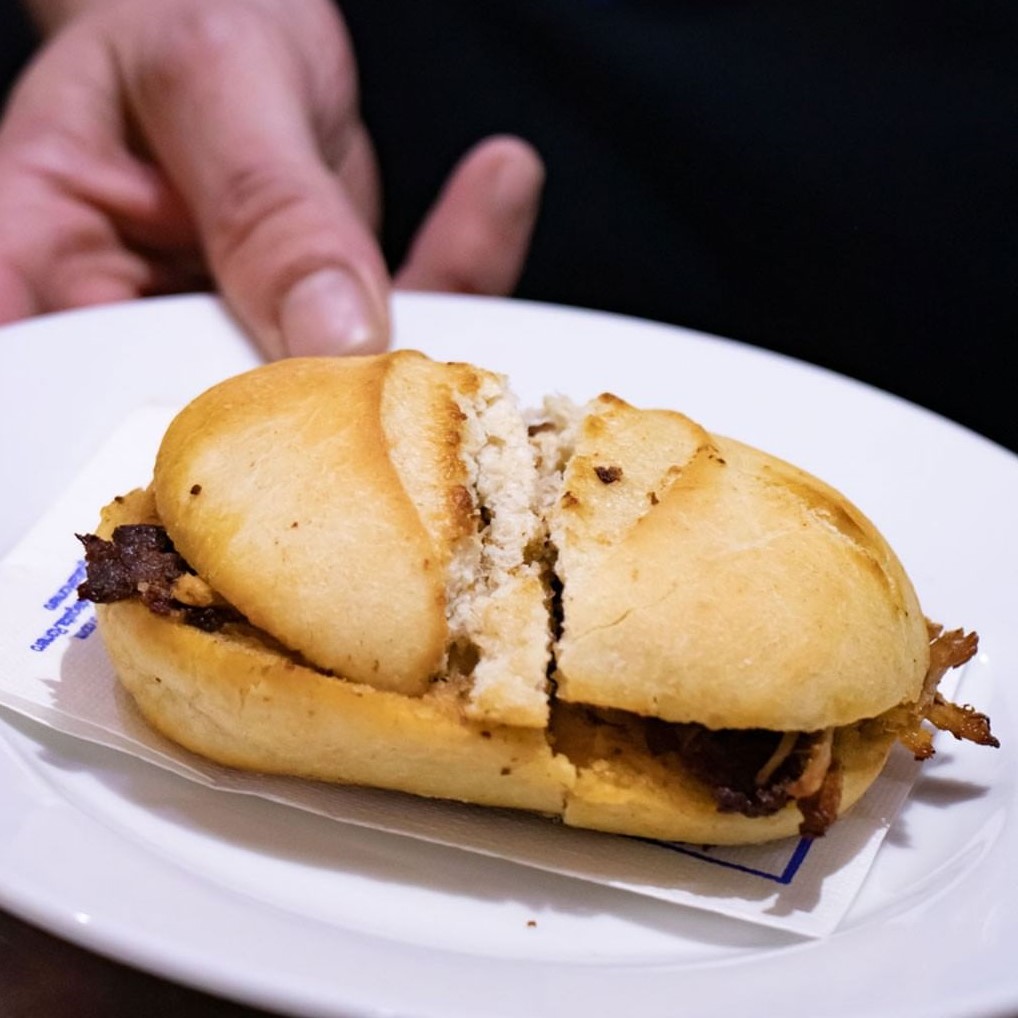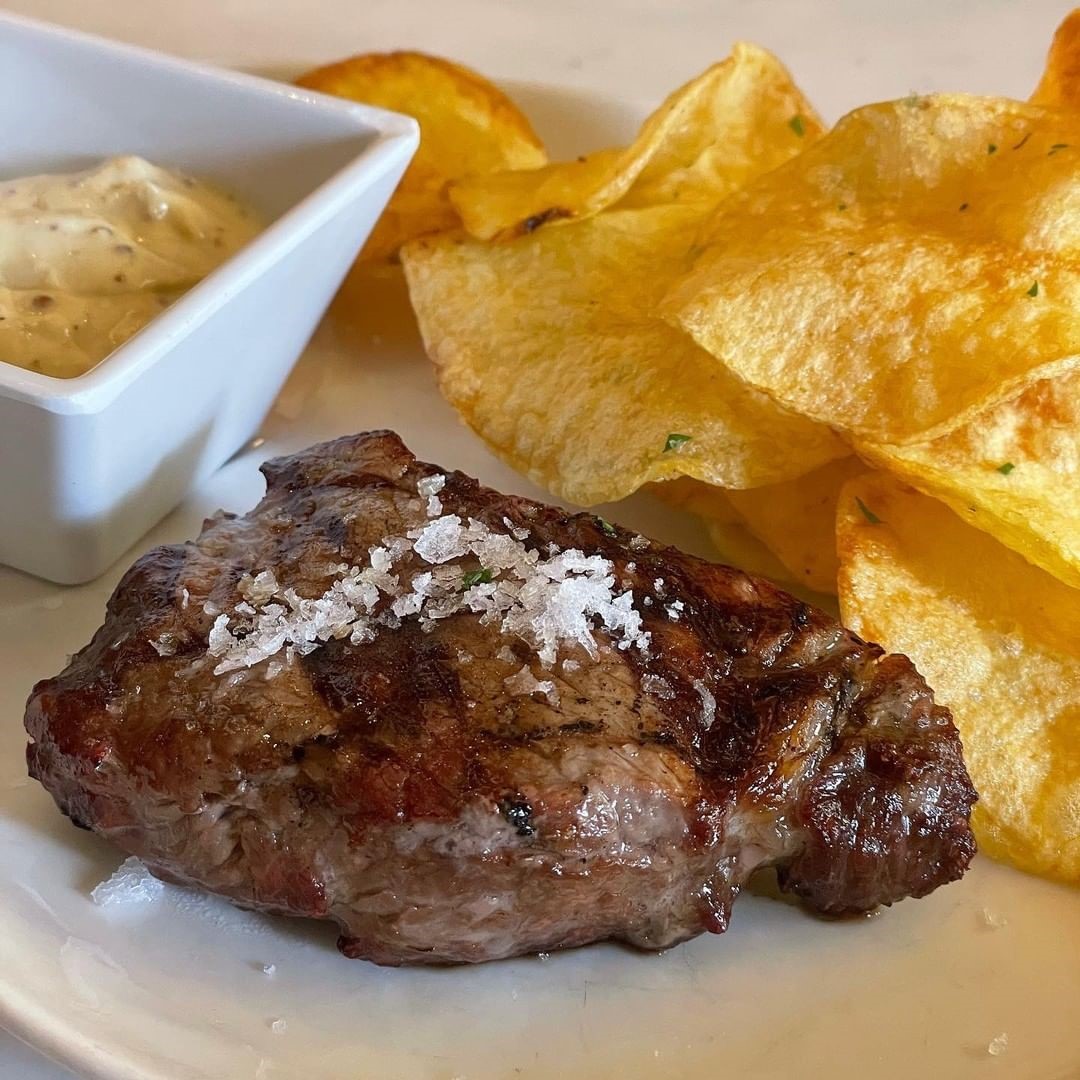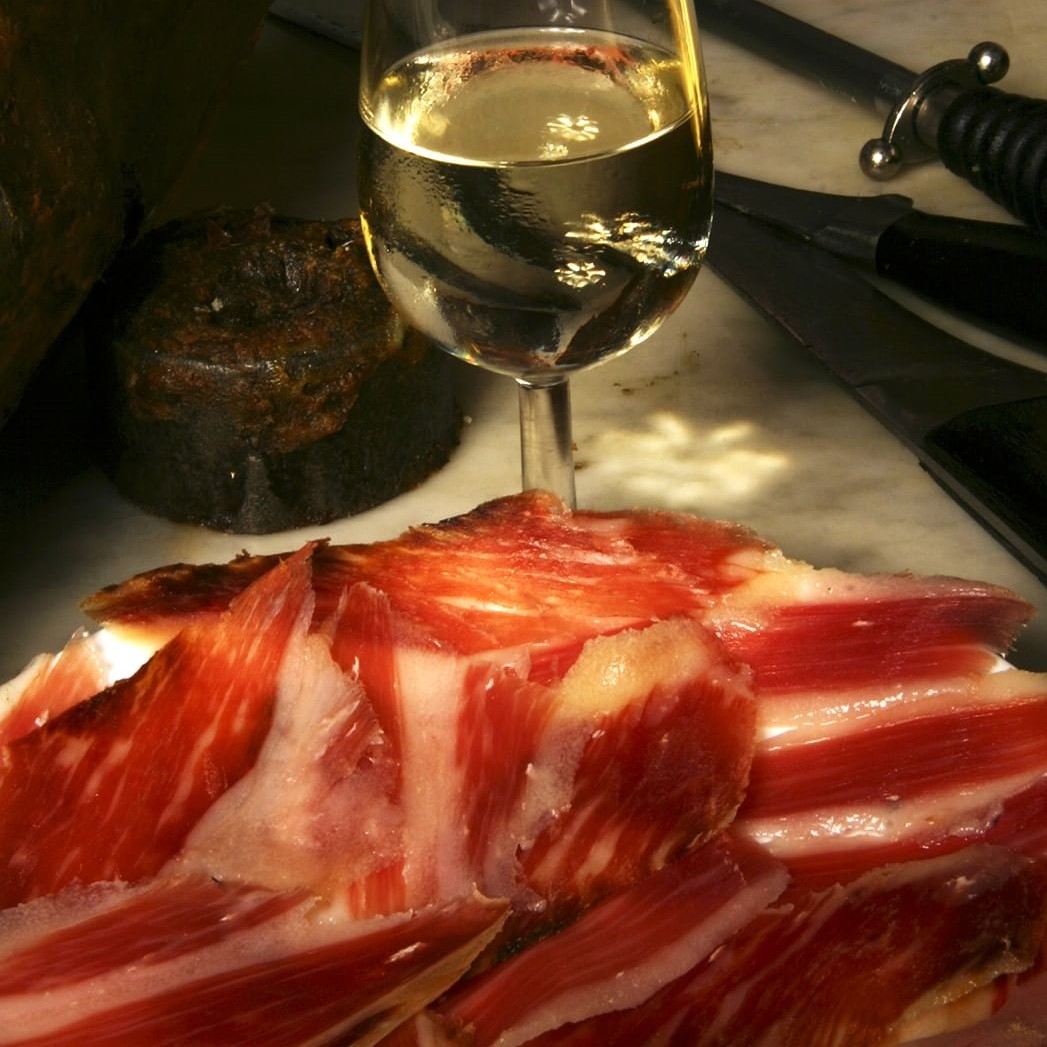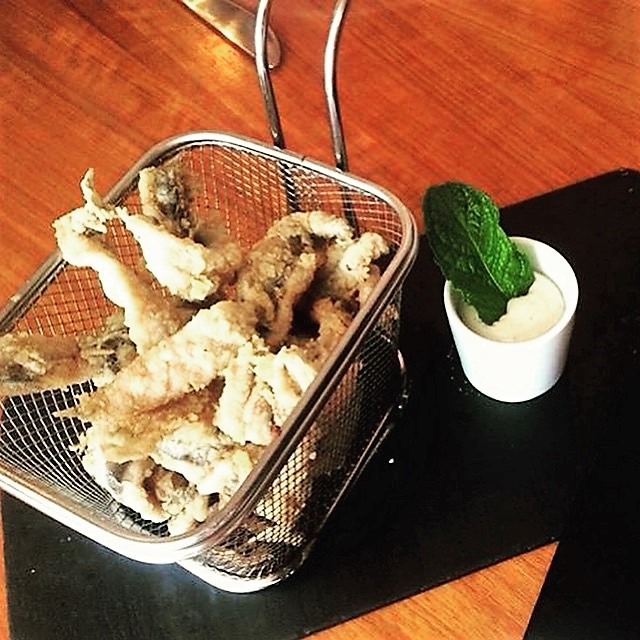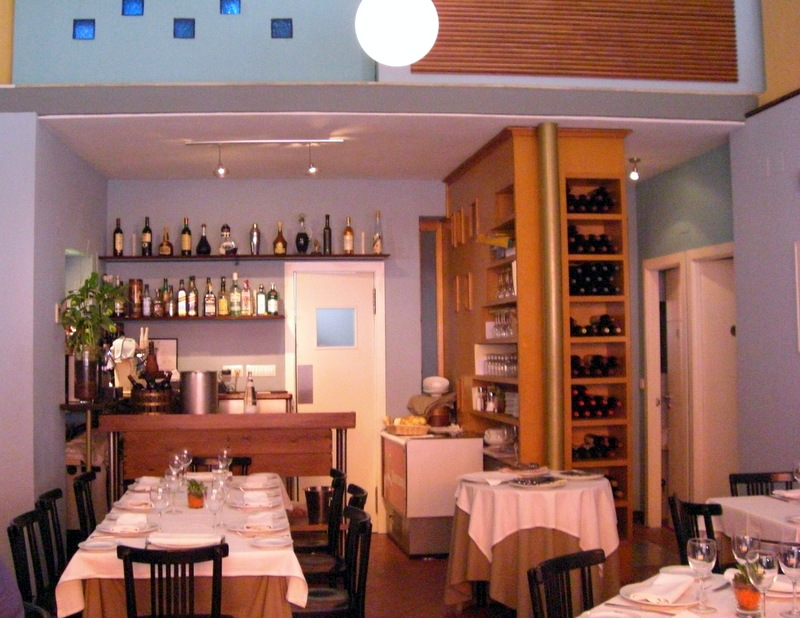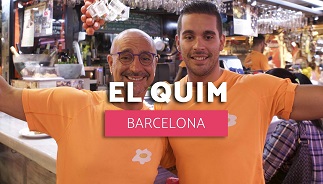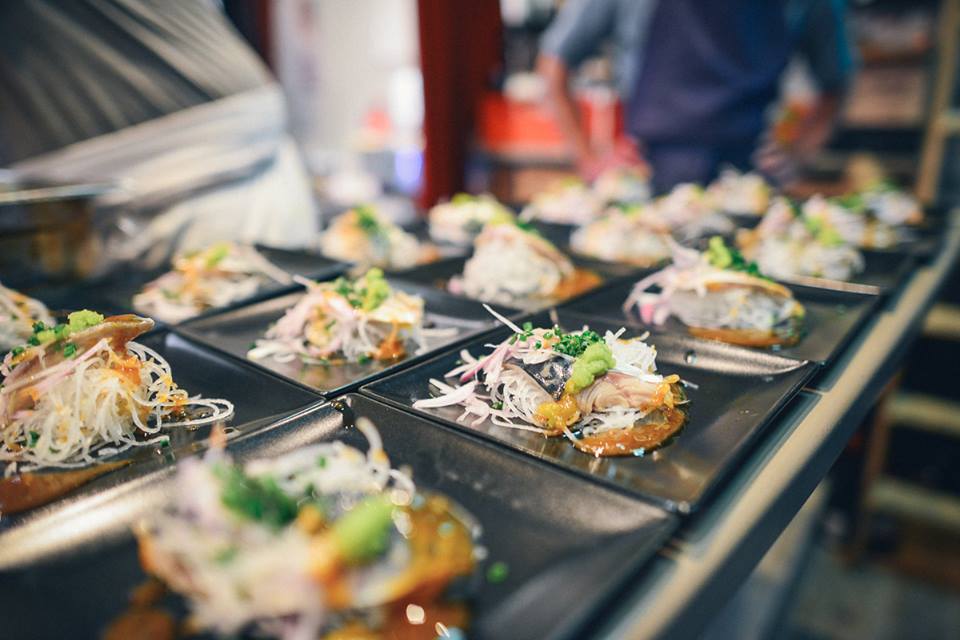10 Essential Tapas in Seville

Restaurante Robles Placentines offers a fabulous view of Seville along with its tapas. / Courtesy of sepessevilla.com
In recent years, Spanish cuisine has received increasing international recognition, and deservedly so. In the south of Spain, and especially in Seville, my home for the last twenty-odd years, that means tapas.
The dictionary definition of a tapa describes it as a cover or lid, which gives us a clue as to how this came to mean a small snack. Although there are many stories as to the origin of tapas, they were originally something like a simple slice of ham or cheese placed on top of a glass to accompany a drink.

Tapas are seldom served without alcohol and are not meant to be a meal in themselves. / Courtesy of pbs.twimg.com
With time, tapas became more varied and substantial, and a central part of the social life of the country, especially in the south. It is said there are now more than 3,000 tapas bars in Seville, and there seems to be a tapas bar on every street corner. With so many to choose from, it can be hard to know where to begin. But don’t panic – help is at hand for mastering el tapeo (going out for tapas) in Seville.
The Spanish eat later than normal. The main meal of the day is lunch, taken between about 2 and 4 p.m. But a lot of bars are open from about 1 p.m. Many bars close between 5 and 8, and most of those that are open won’t have hot food available, though a few have all-day kitchens. Bars generally open again at 8, though most Spaniards don’t eat until later. In summer, the busiest time is around 10 to avoid the heat. Most kitchens in Seville close around 11:30 p.m., after which everything winds down.
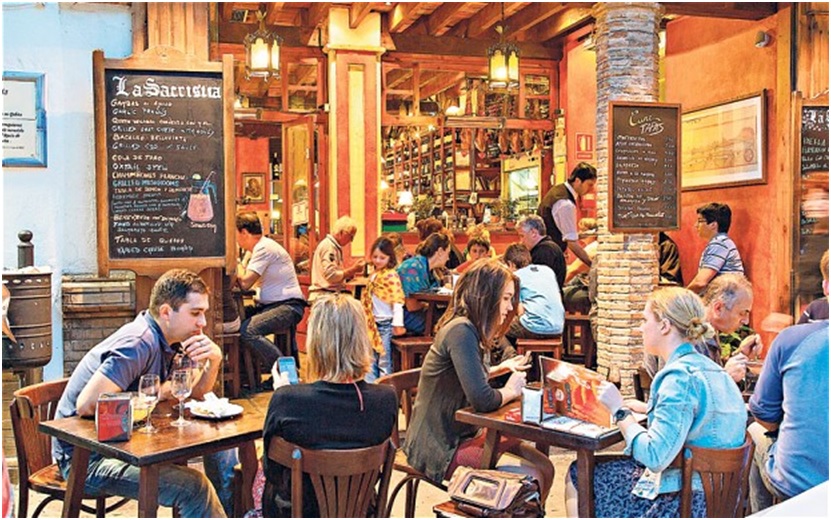
Tapas is as much about socialising and meeting people as it is about eating and drinking. / Courtesy of telegraph.co.uk
Going out for tapas is as much about socialising and meeting people as it is about eating and drinking. And in a country where the climate allows people to be outdoors for most of the year, it is no surprise bars are busy, sometimes almost chaotically so. But don't let this intimidate you. People come and go, and you can usually find a space quickly. Just grab a drink and watch for your opening.
In a lot of places, tapas are only served at the bar, and raciones or media raciones (full and half plates) at the tables, but there is no fixed rule. If in doubt, ask “Hay tapas en las mesas?” (Are there tapas at the tables?), and when ordering, make it clear by saying “Una tapa de...”
Once you've got a spot, don’t order everything at once. About one tapa per person per round works well for me, then you can order more if you want, and stop when you’re full. This also gives you the opportunity to see what other people are having and order anything that looks good. Don’t be afraid to move on elsewhere (particularly if your first round of tapas wasn’t up to scratch). Most bars have specialities, so ask for recommendations, but remember that most waiters speak little (or any) English.

Consider leaving a 10 percent tip. / Courtesy of mienmagazine.com
It’s common to share food, which gives you the opportunity to try a wider variety of things. When you’re ready to leave, you’ll need to attract the waiter’s attention for the bill, as it’s not the custom here to push people into leaving as quickly as possible. The International Writing Gesture and “La Cuenta, por favor” should suffice. Spain isn’t generally a tipping culture, but unless the food or service has been poor, I like to leave about 10 percent; waiters here work hard, and the pay isn’t great.
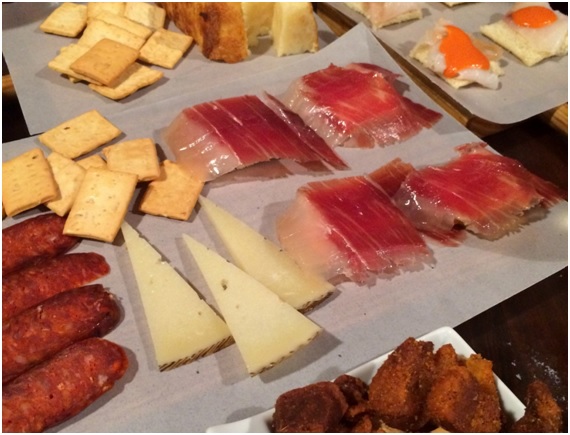
Tapas lovers have myriads of options in Seville. / Courtesy of azahar-sevilla.com
Any list of essential tapas in Seville is, by its nature, subjective and incomplete. But the following selection - with suggestions for where to get the best in town - should help you get started. Click on the highlighted links for more on where to find the tapas.
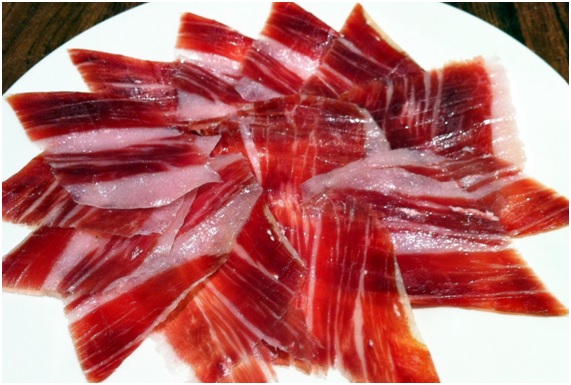
Spain’s cured ham is sliced paper thin. / Courtesy of azahar-sevilla.com
1. Jamón Ibérico de Bellota
Spain’s unique cured ham, courtesy of the free-range acorn-eating Iberian Pata Negra pig, is sweet, succulent and special. Sliced paper thin and served at room temperature, this is, without a doubt, the best ham in the world.
Where to try it: Las Teresas; Flores Gourmet; Casa Roman
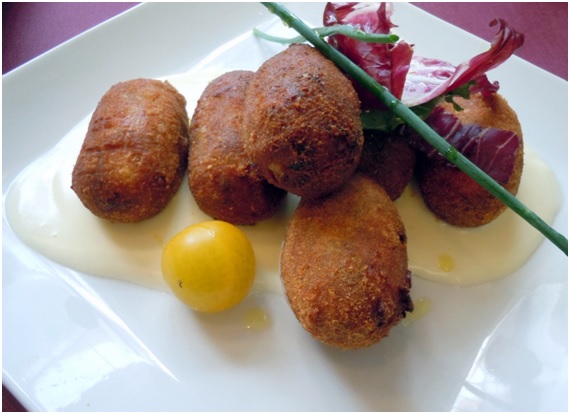
Croquettes are a common sight in bars across Spain. / Courtesy of azahar-sevilla.com
2. Croquettes
Spanish croquettes are one of the universal starters of Sevillano cuisine. These small cakes of minced fillings (ham, cheese, fish, mushrooms, etc.) are breaded, deep-fried and served with béchamel sauce.
Where to try it: La Azotea; La Chalá; La Pepona
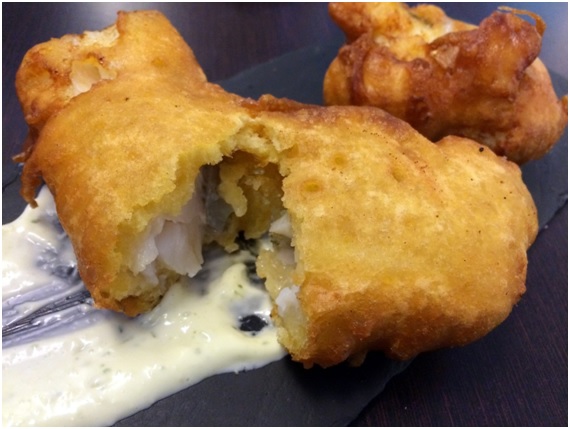
Salt cod is a staple in Spain. / Courtesy of azahar-sevilla.com
3. Pavia de Bacalao
Salt cod is a staple in Spain, and lightly battered and fried is one of the most typical ways of preparing it. Done properly, the batter should be light, crisp and delicious.
Where to try it: Restaurante Baco Cuna; Casa Antonio Los Caracoles; Freiduría El Arenal
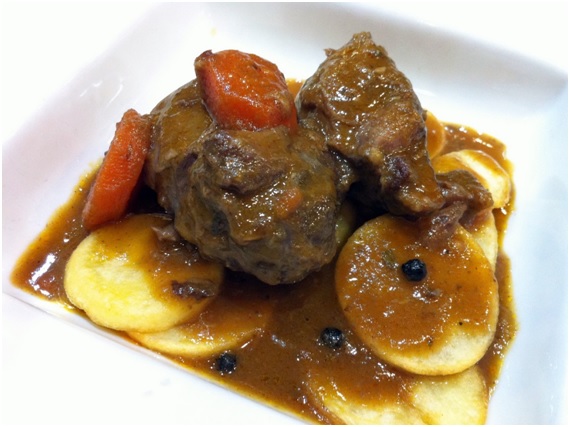
Carrillada is a star of Spanish cuisine. / Courtesy of azahar-sevilla.com
4. Carrillada
Melt-in-your-mouth Iberian pork cheeks are slow-braised in a variety of delicious sauces. Need I say anything more?
Where to try it: Bodeguita Romero; Eslava; Casa Roman
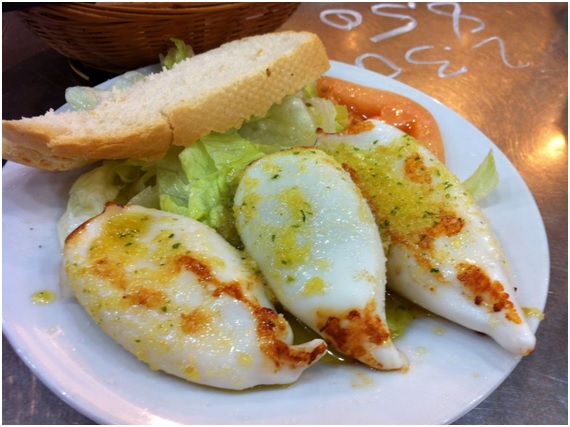
Squid is grilled, simply dressed and served. / Courtesy of azahar-sevilla.com
5. Chipirones Plancha
Small squid, lightly grilled, are dressed with a little olive oil, garlic and parsley. A wonderfully simple dish that's simply perfect.
Where to try it: Las Golondrinas; La Primera del Puente; La Cantina
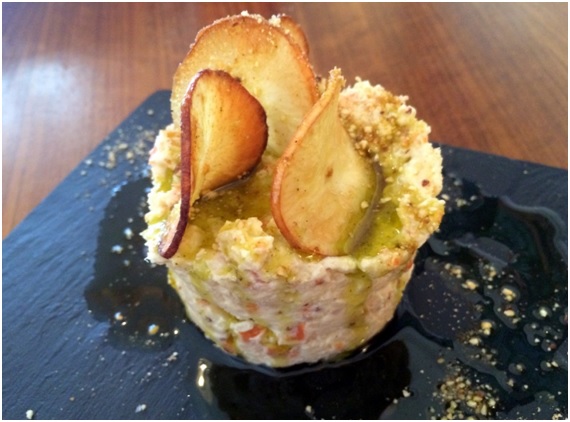
Every bar in Spain makes its ensaladilla a little different. / Courtesy of azahar-sevilla.com
6. Ensaladilla
Potato mayonnaise salad, often with tuna or prawns added, is ubiquitous in Seville. It’s also one of my least favorite tapas. But at these three bars, they’ve transformed a usually bland and stodgy dish of potatoes, peas and carrots into something delectable.
Where to try it: Petite Comité; Sahumo; Casa Morales
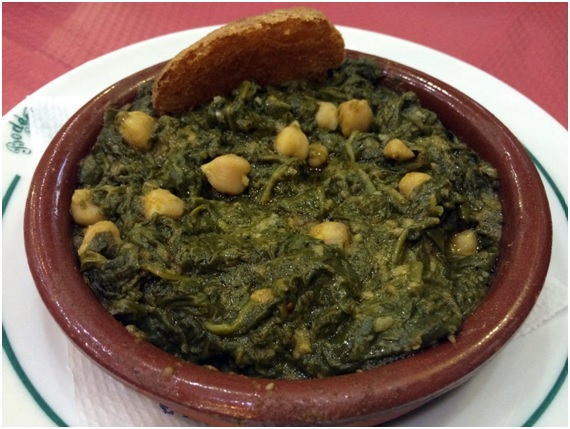
Spinach and chickpeas, a dish that originated in Northern Africa, are cooked in a spicy stew. / Courtesy of azahar-sevilla.com
7. Espinacas con Garbanzos
This spinach and chickpea stew, available almost everywhere, is flavored with garlic and cumin and usually served with a piece of fried bread on the side. If you’re not Spanish, you probably didn’t realise spinach could be this good.
Where to try it: Las Teresas; Bodeguita Romero; El Rinconcillo
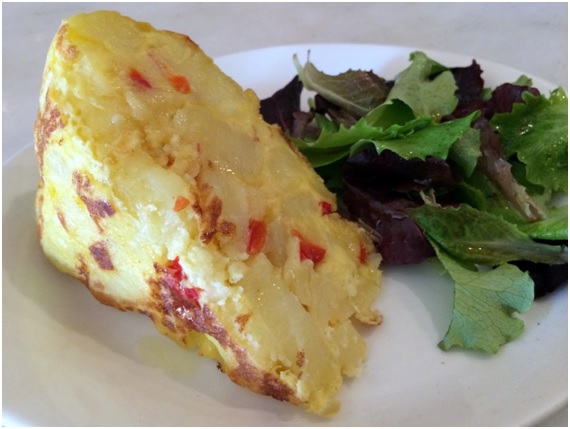
A Spanish omelette with sliced or diced potatoes is extremely common. / Courtesy of azahar-sevilla.com
8. Tortilla de Patatas
The traditional Spanish potato omelette is a simple dish that is easy to get wrong. Here are three bars that do it right.
Where to try it: Casa Morales; Vineria San Telmo; Casablanca
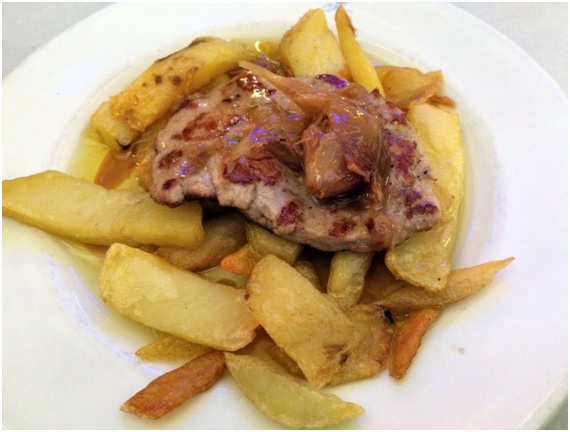
Pork in Whisky Sauce, or Solomillo al Whisky, is a savory Spanish classic. / Courtesy of azahar-sevilla.com
9. Solomillo al Whisky
Medallions of pork tenderloin are served in a whisky sauce with lots of slow-cooked whole garlic cloves and a dash of lemon.
Where to try it: Cerveceria Giralda; Sol y Sombra; Eslava
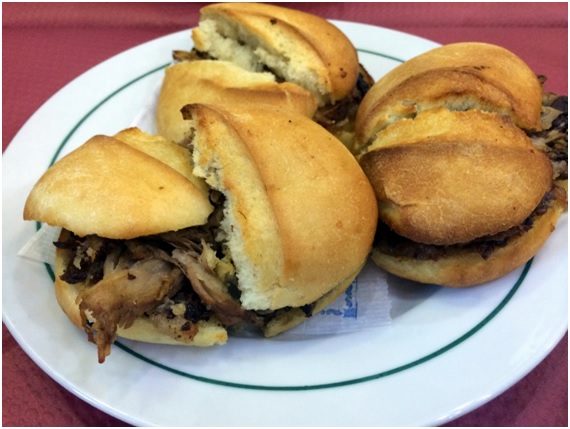
Pringa, a meat stew, is popular in rural Andalusia. / Courtesy of azahar-sevilla.com
10. Pringá
Pringá comes from a traditional garbanzo bean stew called a Cocido. Various meats (pork, chorizo, black pudding) are slow cooked with the beans, which are then served separately. The meats get mixed together and served on the side with bread. At tapas bars, pringá is typically served as a small sandwich. The pringá montadito at Bodeguita Romero is legendary and easily the best to be found in Seville (or anywhere).
Where to try it: Bodeguita Romero; Casa Moreno; Las Columnas
Category:
Recommended features by ExtremeFoodies



